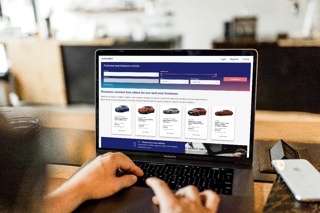Three-quarters (75%) of fleets have reviewed their car provision during the last 12 months, as the focus on cost-saving continues for most organisations, according to findings from the Alphabet Fleet Management Report (AFMR) 2012.
In addition the number of employers that benchmark fleet costs against the average for the industry was also sharply up at 60% from 42% in the 2011 survey.
The number of organisations offering salary sacrifice schemes also increased in 2012, from 26% to 33%, while businesses allowing staff to buy company cars at the end of their contracts went up from 46% in 2011 to 58% this year.
In addition the AFMR 2012 included a segment of public sector companies and revealed that the role of the company car as both a status symbol and as a means of reflecting company brand and image is far more important to private companies.
Only 26% of public sector fleet managers versus 44% in private companies considered the company car to be important to brand image, while only 10% of public sector companies said that the company car is important as a status symbol to encourage employee development (versus 35% of private companies).
However many companies are still concerned about the apparent cost of ‘going green’.
Cost was stated as the main barrier to reaching green targets by 52% of the fleet managers surveyed.
When asked why, 91% of public sector fleets and 76% of private companies pointed to the apparent expense of changing to greener vehicles as the biggest hurdle.
Companies still in the dark on grey fleet mileage
In the 2011 AFMR nearly four out of 10 fleets admitted that they did not know how much they paid in mileage rates to employees who drive their own cars on business.
This year the number of ‘don’t knows’ fell to a quarter – although this is still a considerable figure given the potential sums involved.
Paul Hollick, sales and marketing director at Alphabet, said: “Those businesses that do take steps to get to grips with mileage expenses typically see their fuel and mileage claims bills fall by as much as 25%.
“As companies continue to seek out ways to make cost savings, it is fundamental that they take urgent steps to gain a central view of the full fleet and travel bill, to in turn gain a better understanding of what the total bill for business mobility adds up to.”
HR departments less involved in fleet decisions
One of the most striking findings from this year’s report was a sharp drop in the number of in-house fleet managers.
In the AFMR 2011, 66% of fleets were run by a fleet manager. In 2012 however the proportion has fallen dramatically to 37%.
This trend was felt most keenly amongst private sector operators; just 27% of the organisations surveyed had an in-house fleet management function, compared to 63% in 2011.
In the public sector the pace of change is slower; 67% retain an in-house fleet manager today versus 77% in 2011.
Increasingly the fleet management role was found to have migrated to procurement, finance and, particularly, operations departments.
The HR department appears to be less involved in fleet decision making; its presence in the fleet management process fell by more than half to just 4% in 2012.



















Login to comment
Comments
No comments have been made yet.